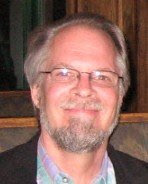Bela Fleck, one of the finest musicians of our time, has done it again. Beginning in 2005, Bela packed up his banjo and set out for Africa in search of the roots of the oft-maligned instrument of which he is such a master. He journeyed across the African continent playing with many excellent musicians, particularly those who play instruments that belong to the same family as the banjo. His musical encounters are now beautifully recorded in an exquisite documentary film called Throw Down Your Heart, which I recommend wholeheartedly. A CD with the same name is also available.
Now Bela is touring with one of the musicians he encountered in Africa, Toumani Diabate from Mali. Toumani is a master of the kora, a 21-string instrument that clearly shares roots with the banjo. He plays the kora as well as Bela plays the banjo, if one can even imagine that. The two of them are magnificent together, sharing a musical dialogue of depth, improvisational complexity, and extraordinary beauty. Don't miss an opportunity to see them if you have the chance.
As an aspiring banjo player myself, I am very aware of the troubling symbolism of my adopted instrument. To many people it is a reminder of racism, of slavery, of some of the worst elements in American history. And yet the banjo is an authentic African instrument. According to one of the musicians Bela met in Africa, the banjo lifted the spirits of the people who were hijacked to America under horrible conditions and helped them survive the tragic and painful journey. The banjo may symbolize troubling dimensions of America, but it stands for Africa as well. Bela demonstrates this truth and brings the banjo back full circle to its home. There is an unmistakable feeling of redemption about this journey.
To watch Bela and Toumani play together is to see some of the wounds of the world healed, if only for an evening. They laugh together, improvise together, and delight in each giving the praise to the other. When they join hands, as they often do after a song, we feel the transcendence of boundaries, as issues of language, nationality, religion, race, and for a moment even the tragedy of slavery are overcome by the musical partnership. When they playfully weave together a medley of traditional African tunes with "Oh Susanna" and "Dueling Banjos," we have a sense of experiencing a reconciliation that is almost unimaginable.
Several readers of this blog have asked me how we can go about making the world more inclusive. What can we actually do? Transformation comes about through individual acts of creativity and courage. If Bela Fleck can redeem the symbolism of the banjo and reunite this ancient instrument, stolen from its roots by oppressors, with its deeper identity in African music, then perhaps any problem is capable of transformation. Together Bela Fleck and Toumani Diabate create marvelous, uplifting music, but they also do more. They apply healing sounds to a deep wound and give us hope that other wounds can be healed as well. We have cause to be grateful to them.
If you have other stories of overcoming boundaries, with or without music, or if this story resonates with you, leave me a comment.
Subscribe to:
Post Comments (Atom)




Music IS the universal language...a uniter..and a healer.
ReplyDeleteRobert Ingersoll "It was below and before speech and it is above and beyond all words"
ReplyDeleteMusic is Creation in manifest...
Jinny and Maureen,
ReplyDeleteThanks for harmonizing my melody. Music has the power to lift our spirits and bridge the gaps. Thank goodness.